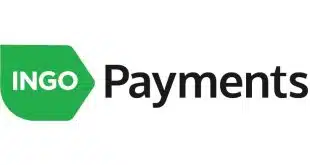Financial institutions lost an estimated $546 million to debit card fraud in 2004, with fraud rates running much higher on signature-based cards than on cards secured with PINs, according to study released this week. Banks lost $345 million in fraud committed on ATMs, while fraud on signature-debit cards cost them $193 million and PIN debit cards at the point of sale sustained $8 million in losses. These are among new debit card fraud statistics compiled by the study, which was conducted this summer by Dove Consulting and sponsored by Pulse EFT Association, a Houston-based unit of Discover Financial Services LLC. “Transaction volumes for both PIN and signature debit continue to grow, yet observers increasingly are questioning the soundness of these payment mechanisms,” says an executive summary of the report in explaining why Dove and Pulse sought to measure fraud rates, and in particular to compare the loss rates on PIN and signature-based cards. The loss rate attributable to signature-debit cards is approximately 15 times greater than that for PIN debit when losses are measured against either transaction or dollar volume, the study says. Fraud on signature cards ran 1.6 cents per transaction, whereas the loss rate on PIN debit ran 1/10 of a penny per payment. On average, issuers lose $1.15 per card per year to signature-debit fraud, compared with 4 cents on PIN debit cards, though the average loss on a PIN card is significantly higher: $160 versus $86 on a signature card. Old-fashioned card theft still accounts for most signature card fraud, and PIN fraud stems mostly from familiar skimming schemes and so-called friendly fraud, or unauthorized use by someone known to the cardholder. But the study warns electronic means of theft are growing more worrisome. “Large-scale system compromises and phishing attacks are adding complexity and cost to issuers' fraud prevention programs,” said Tony Hayes, managing director of Dove's financial-services practice, in a statement. Adds an executive summary of the study: “Phishing is on the rise and consumers are increasingly being duped into revealing their personal identification numbers online.” The study points out that the most effective ways of combating debit card fraud are: mandating that cardholders activate cards; relying on neural networks to ferret out unusual transaction activity; checking the card-verification value on all transactions; and mailing PINs separate from cards. Nonetheless, warns the report, “With the growing sophistication of fraudsters, most financial institutions expect debit card fraud, for signature and PIN debit, to increase in the future.” For the study, entitled “Debit Card Fraud and Performance Benchmarking,” Dove interviewed 48 financial institutions representing 50 million debit cards, a sample it regards as representative of the debit industry. These institutions, which included nine of the 20 largest banks, belong to all major electronic funds transfer networks. These banks reported their PIN debit transaction volume grew 34% from May 2004 to May 2005, while signature-debit volume was up 30%. They project growth of 22% for PIN debit and 18% for signature over the coming year. “A debit card is, in many cases, the primary method by which consumers access their checking accounts,” says the summary. An interesting finding was that 32% of issuers levy a transaction fee for PIN usage on at some of their customers. The study estimates these fees affect an estimated 7% of cardholders and average 47 cents. This contrasts with a Federal Reserve study issued last year (Digital Transactions News, Nov. 24, 2004), which found fewer banks assessing such fees (14%) but more consumers affected by them (15%) and a higher charge (median levy of 75 cents). Meanwhile, financial institutions charge cardholders who use another deployer's ATM an average fee of $1.54, according to the Pulse/Dove study.
Check Also
Fiserv’s Clover Goes Down Under and other Digital Transactions News briefs from 3/31/25
Fiserv Inc. has introduced its Clover point-of-sale technology in Australia. The system is now available in …





